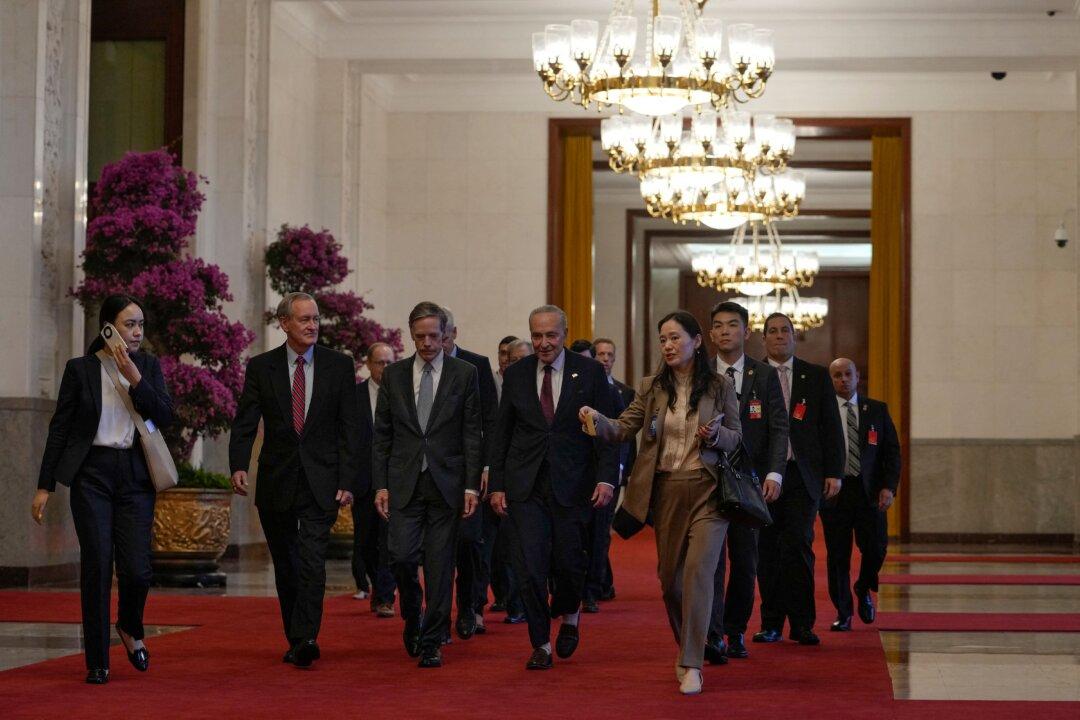Chinese leader Xi Jinping met with a bipartisan delegation of U.S. senators in Beijing on Oct. 9, in the first exchange with American lawmakers in nearly a decade, a sign that the communist regime wants to engage with Washington in the face of a stalling economy.
The six-member delegation, led by Senate Majority Leader Chuck Schumer (D-N.Y.) and Sen. Mike Crapo (R-Idaho), is on the third day of their Asia trip, which includes stops in Japan and South Korea.





